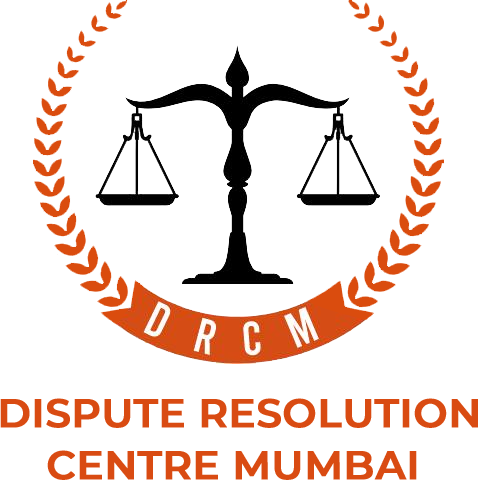Institutional Arbitration
An institutional arbitration
An institutional arbitration is one that is administered by an institution agreed upon by the parties and conducted in accordance with that institution’s arbitration rules. Generally, the arbitral institution’s role in an institutional arbitration includes (but is not limited to): receiving the request for arbitration and distributing it to the respondent; appointing the tribunal where the arbitration agreement provides for them to do so or in default of the parties’ ability to do so; setting and administering the financial arrangements for the arbitration (Eg.: setting a deposit or an advance on fees, and paying the tribunal’s fees); assisting the tribunal to deal with any issues that arise relating to the conduct of the arbitration (Eg.: a challenge to a tribunal member). Institutional arbitration has several advantages over ad-hoc arbitration, such as providing procedural rules for conduct of the arbitration, assistance with the appointment of arbitrators, and general administrative assistance. Indian parties are increasingly opting for institutional arbitration to resolve their disputes.
Arbitration may be defined as a process in which two or more parties settle their disputes as to their legal rights and liabilities by referring the dispute to a particular person (arbitrator), who decide the dispute with a binding effect and by applying the law, instead of the parties going to the Court of law. Arbitration is an alternative process of solving disputes, and hence, it coexists with the system of litigation. The main objective of having an arbitration proceeding is to solve the dispute as fast as possible, which also has a binding effect, without going to the Court of law and getting engaged in the long-drawn judicial procedure. In India, the alternative method of solving disputes have been present from a long time, since trade and commerce started to grow outside the country.
Arbitration may be defined as a process in which two or more parties settle their disputes as to their legal rights and liabilities by referring the dispute to a particular person (arbitrator), who decide the dispute with a binding effect and by applying the law, instead of the parties going to the Court of law. Arbitration is an alternative process of solving disputes, and hence, it coexists with the system of litigation. The main objective of having an arbitration proceeding is to solve the dispute as fast as possible, which also has a binding effect, without going to the Court of law and getting engaged in the long-drawn judicial procedure. In India, the alternative method of solving disputes have been present from a long time, since trade and commerce started to grow outside the country.
What is Institutional Arbitration?
Institutional arbitration is a process where a specialized institution administers the arbitration proceedings according to its established rules and procedures. This contrasts with ad-hoc arbitration, where the parties themselves agree on the procedures and arbitrator without institutional support. Institutional arbitration ensures a more streamlined and consistent approach to resolving disputes, benefiting from the institution’s expertise and infrastructure.
WHY CHOOSE US
Why Choose Institutional Arbitration at DRCM?

Expertise and Experience
Our panel of arbitrators comprises seasoned professionals with extensive experience in various sectors and legal systems. This ensures that your dispute is handled with the highest level of expertise and understanding.

Structured Process
DRCM provides a well-defined framework for arbitration, from the initiation of proceedings to the final award. Our rules and procedures are designed to facilitate a fair, transparent, and efficient resolution of disputes.

Administrative Support
We offer comprehensive administrative support, managing all logistical aspects of the arbitration process. This allows parties to focus on the substantive issues of their dispute without being burdened by procedural complexities.

Neutral and Impartial
As a neutral institution, DRCM ensures impartiality in the arbitration process. Our commitment to fairness and justice underpins every aspect of our operations.

Confidentiality
We understand the importance of confidentiality in dispute resolution. Our procedures are designed to protect the privacy of the parties and the confidentiality of the proceedings.
Institutional Arbitration Process
Following Steps to resolve a dispute:
1. Register on DRCM Portal.
2. File a new dispute.
3. Select intermediary against whom you wish to file a dispute.
4. Select Category
5. Enter Dispute details
6. Payment of fees online
7. Track resolution process on DRCM Timeline.
3. Select intermediary against whom you wish to file a dispute.
4. Select Category
5. Enter Dispute details
6. Payment of fees online
7. Track resolution process on DRCM Timeline.
List of Arbitrators
Former District and Sessions Judge :
Sushil Kumar Goyal, (Retd.) District & Sessions Judge
Senior Advocates:
Mr. Kishor V Kotwal, Sr. Advocate, Bombay High Court
Mrs. Vidya K Kotwal, Sr. Advocate, Bombay High Court
Mr. Niraj Kumar, Sr. Advocate, Delhi High Court
Mr. Mukund Kumar Singh, Sr. Advocate, Delhi High Court
Mr. Amit Tanvar, Sr. Advocate, Delhi High Court
Mr. Udit Purohit, Sr. Advocate, Rajasthan High Court
Dr. Raina Midha, Sr. Advocate, Punjab & Haryana High Court
Former Police Officer:
Mr. Manoj M Pawar, (Retd.) Police Officer
Call Now
